Aggression in cats and cats: the main causes and methods of solving the problem

Most cat lovers make furry friends in the hope that they will give them only affection and love. What a surprise the beloved cat presents them when it suddenly becomes aggressive! Consider in the article why cats change their behavior, what symptoms should be paid attention to, and what to do with an evil cat.
Symptoms and causes of aggression
Very aggressive cat behavior does not always indicate pathology. The fact is that all wild cat habits cannot be eradicated. If a cat has recently become a mother and now attacks the owners, just passing by her offspring, then this is not surprising. Thus, she shows maternal instinct and protects kittens from possible danger.
Cats can suddenly change their behavior to aggressive during hormonal surges. They often dislike people in the spring, as at this time they have laid the cycle of readiness for reproduction. Even castrated cats can react in this way, as the manifestation of dominance and aggression is embedded in the brain.
Interestingly, it is white cats that are most prone to negative behavior (growling, scratching and biting). They are all distant relatives of the Angora breed, famous for its bad temper.

The main symptoms of aggression are:
- tail nerve waving;
- the cat is hiding in a corner or is pressed to the ground;
- ears are pressed to the head;
- dilated pupils;
- hiss;
- when a cat literally rushes at the owners from behind every corner.



The reasons for the immoral behavior of a pet are very diverse and require detailed consideration. We list the main ones.
- Painful sensations. If the cat is in pain due to illness, injury, surgery, then for sure she will not let anyone close to her. Unfortunately, it is impossible for the animal to explain its good intentions, and sometimes you have to endure attacks in order to at least feed your pet.
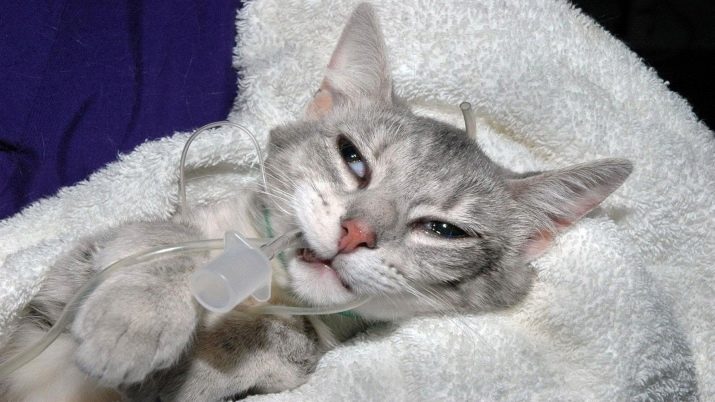
- Hormonal problems. A kitten can rush at a person during puberty, and an adult cat and cat in spring. The period of estrus in cats causes violent excitement in males, and they all behave extremely aggressively. Someone more, and someone less. The older the animal, the less it is affected by such phenomena, but there are exceptions. If in a cat or cat something similar is observed in old age, it is better to leave the animal alone and do nothing.

- The struggle for territory. Representatives of the cat family have a certain system of interaction with their brothers: they choose a leader in battles and constantly strive to overthrow him with the help of another fight. Friendship between two same-sex cats is a rarity. Therefore, there is nothing surprising in the fact that you decided to put a second cat in your house, and the first one began to show aggression towards him and to you, including, so to speak, in retaliation.
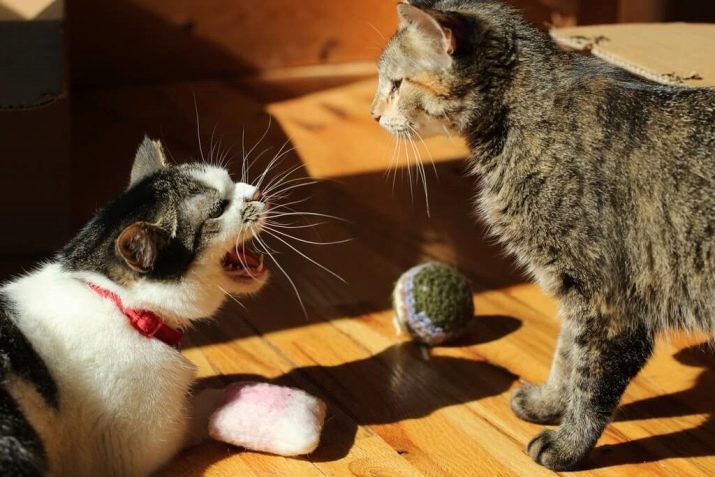
- Stress. If the animal has survived moving to a new residence or repair, another animal has appeared in the house (dog, bird, rabbit), or you have a baby, then the cat’s aggression should not be a surprise to you. Cats are pets and are very worried when their usual way of life is suddenly broken.

- Lack of education. From childhood, a kitten must be taught the rules of the game with the owner: do not let him scratch and bite, use special toys, punish if he does not fulfill the requirements. Otherwise, the cat will think that the owner in the house is him, and will begin to behave accordingly.
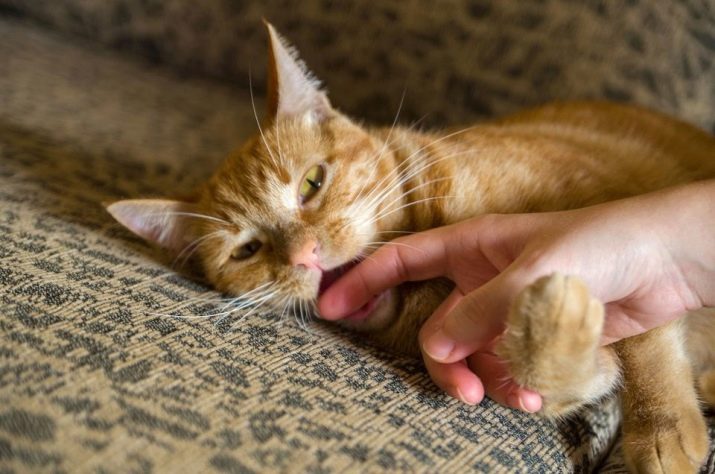
- The animal is starving or thirsty. Perhaps you accidentally missed the feeding time, or the cat ran out of water or spilled from the drinker. In these cases, the disgruntled beast does not know how else to tell the owner about his needs, except to bite or scratch him.
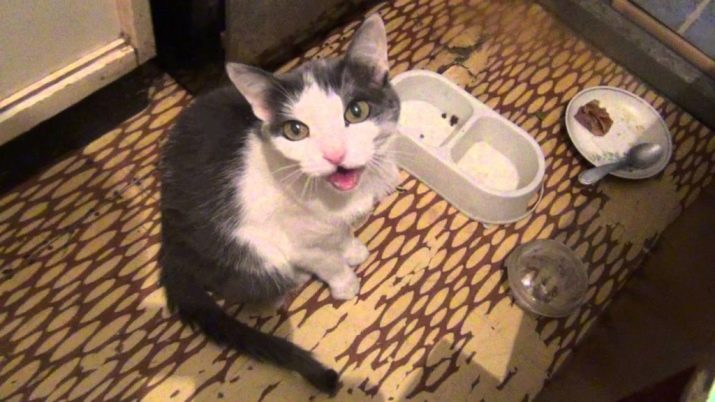
- Pet food is defective. If the cat's diet lacks various vitamins and minerals, then anger and nervous reactions are quite possible. The animal's body must receive proper nutrition so that all of its systems, including the nervous system, work properly.
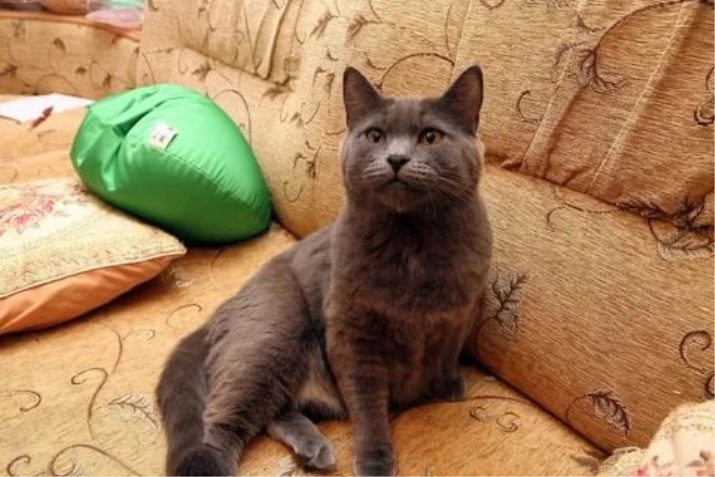
- Mental disorder. Unfortunately, mental problems did not pass cats. Some animals cannot behave differently, simply because they are mentally ill. So whether it is or not, only a doctor can determine.

To begin to fight the aggressive behavior of a cat, you must first find the cause of anger. And already proceeding from it, outline further tactics of action.
What to do?
If you ignore the aggression and wait until it passes magically, you can only aggravate the situation. The cat experiences severe stress at this time, which directly affects its health. Fluffy pets begin to sleep badly, eat, there are problems with the immune system. As a result, the cat can finally go crazy, and its only reaction to all stimuli will be uncontrolled aggression.
That is why no need to shelve the solution to this problem. It is necessary to begin active actions to save yourself and your beloved animal. To pacify the played out kitten is very simple: spray it with water. This measure helps to distract the animal and enable him to understand that he is behaving improperly. With an adult cat or cat, the situation is more complicated.
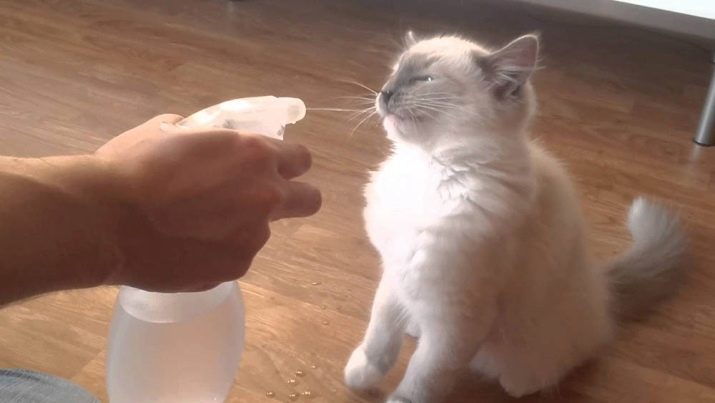
Let's analyze the main measures to prevent aggression in furry friends.
- Visit to the veterinarian. It is better to immediately eliminate the disease and injury of the animal than to miss the moment and regret it. You may not notice the outward signs of your cat's illness. And the veterinarian will suspect something is wrong, help stop the pain from which aggression occurs, and prescribe the right treatment.
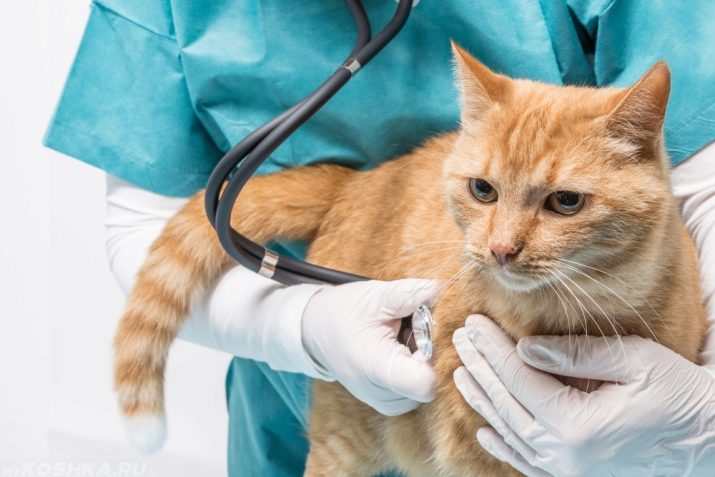
- Castration or sterilization. If the deviant behavior of the animal is associated exclusively with the season of the year and the feline breeding season, and the cat or cat is sitting at home, then castration or sterilization will be the best solution. No need to be afraid of this procedure. If you hold it with an experienced specialist, the animal will quickly recover and heal a completely quiet life without unnecessary hormonal problems.
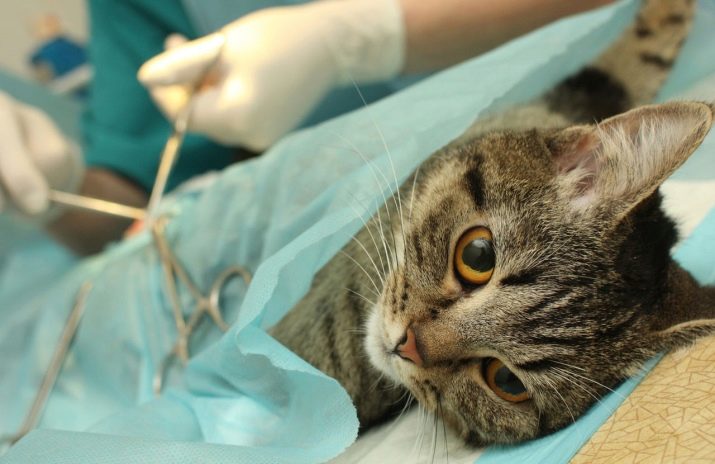
- Privacy. With another cat or cat, other domestic animals, if your furry beast makes friends, it is difficult. To reduce his level of aggression and give time to get used to new neighbors, it is better to give him a separate territory: a room or corner. It is advisable that other pets this place was inaccessible. So your cat or cat will feel safe and gradually calm down.

- Parenting. You need to start raising kittens from a very early age. Adults are much more difficult to retrain. But even the most advanced cases can be corrected. To do this, you need to find an approach to your pet, do not allow him to scratch and bite, but do not beat him at the same time. A method with water or locking a cat in another room most often helps. Do not let children mock animals, as this can affect both the cat and the child.
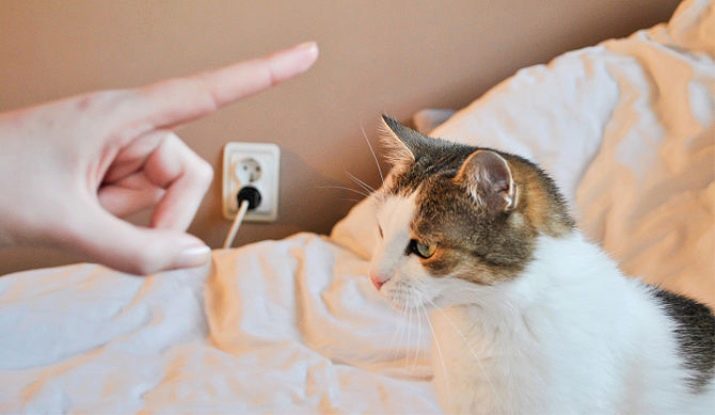
- The selection of good nutrition. In order for the animal to be playful and complacent, it must be fed to the full, moreover, correctly. Do not buy feed from the mass market if you have not found any other causes of aggression other than malnutrition. Choose premium feeds that contain the right combination of proteins, fats and carbohydrates, as well as vitamin supplements. Include some vegetables (carrots, zucchini) in the cat's diet, grow grass for him, for example, oats. Fiber is also important for furry pets as a source of trace elements.

- Euthanasia. Unfortunately, sometimes it is necessary to resort to this at least. If the animal is mentally ill, and no means of aggression help, it is better to put him to sleep. Otherwise, you or your family members will continue to receive injuries, and the nervous situation in the family will become extremely heated.
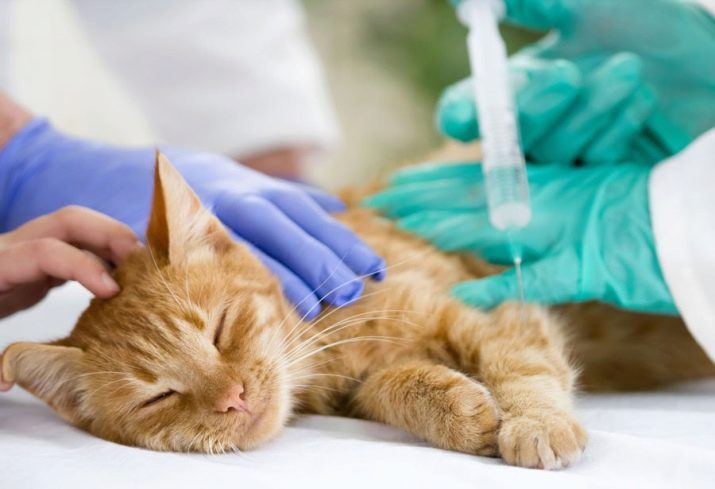
As you can see, any problem with the aggressive behavior of a domestic cat can be solved if you approach this issue wisely. Do not drag out, watch your pet, look for the cause of anger and eliminate it at least partially. We are responsible for those who have tamed.
Useful Tips
Usually the solution to the problem of aggression in cats and cats takes quite a long time. It is impossible to change behavior overnight, and turn a fluffy into a gentle purr from a hellish monster. But if the cat attacks right now, you can avoid the negative consequences for yourself. Pay attention to the useful recommendations of specialists.
- Keep a large blanket or blanket close at hand. If the cat is preparing to jump and will attack you right now, it is better to neutralize the threat in a safe way for both of you: throw a blanket over the animal, grab it and take it to another room, closing the cat there for a while.
- Buy a water gun. From a stream of water the animal will be confused and will cease to show aggression. Most likely, the cat will just run away. Therefore, a water gun is an excellent assistant in neutralizing an attack of rage in cats and cats.
- Be calm. If an aggressive animal is not yet able to calm down, then it should not at least irritate and provoke. Behave in the presence of a cat quietly, do not make sudden movements. Talk gently to your pet - he should feel love and security.
Now you have to be patient and wise to save the situation.Do not lose heart - and you will surely cope with the aggression of your cat.


About cats aggression see below.

































